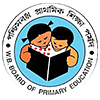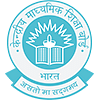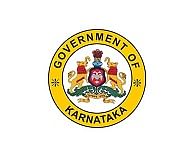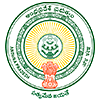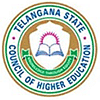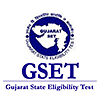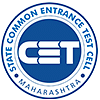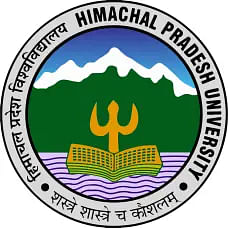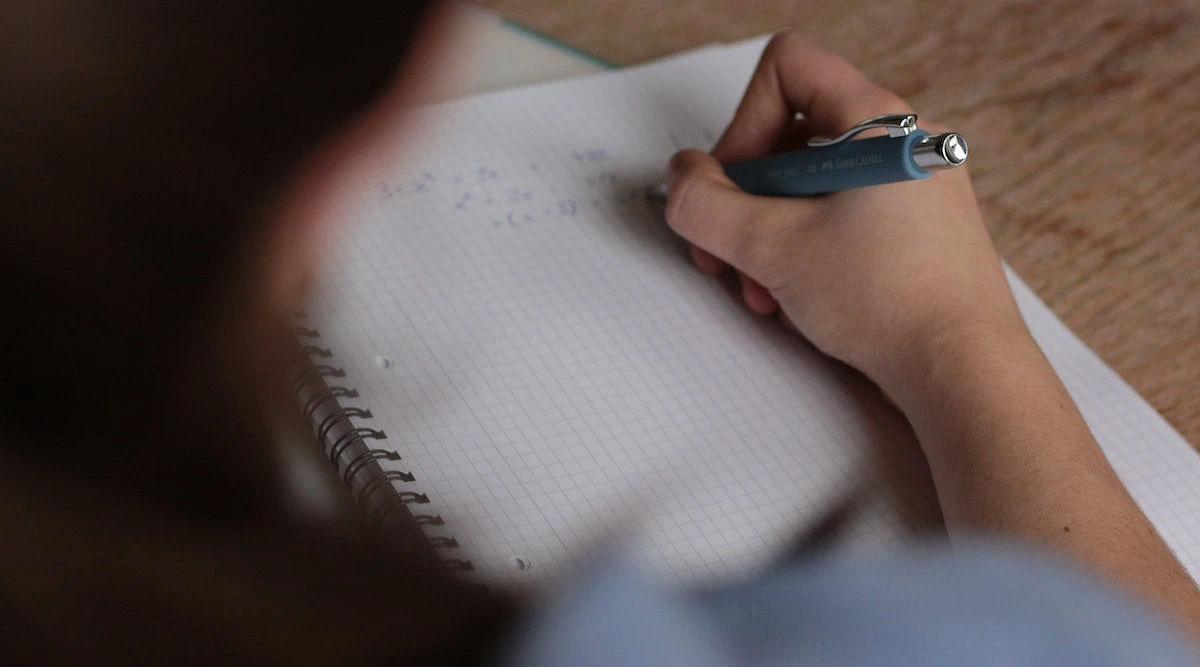
Table of Contents
WB TET Syllabus 2024 is to be released soon by the West Bengal Board of Primary Education (WBBPE) on its official website. The West Bengal TET syllabus comprises two Papers: Paper I and Paper II. The TET exam syllabus for both papers is different and covers various topics related to child development, pedagogy, language, and more.
WB TET exam for both papers will consist of 150 MCQs (multiple-choice questions) that must be completed within 3 hours each. Candidates can access the WB TET Syllabus 2024 PDF, exam pattern, and marking scheme provided below.
Don't Miss: WB TET Admit Card 2024
WB TET Syllabus 2024 PDF Download
WB TET Syllabus 2024 for Paper 1 is designed for aspiring candidates aiming to instruct students from Classes 1 to 5, and Paper 2 is aimed at those aspiring to teach students from Classes 6 to 8. The WBTET syllabus for Paper I covers Child Development, Languages, Mathematics, and Environmental Studies topics.
WBTET syllabus for Paper II emphasizes Child Development Languages and provides a choice between Mathematics and Science or Social Studies. Candidates can download the WB TET Exam 2024 syllabus from the link provided in the table below.
| Paper | Download Link |
| WB Primary TET Syllabus 2024 PDF Download | Click Here |
WBTET Syllabus 2024
The WBTET Syllabus 2024 will soon be released along with the official notification on the West Bengal Board of Primary Education website. The WB TET Syllabus 2024 generally consists of two Papers: Paper I and Paper II.
Paper I comprises subjects such as Child Development, Language, Mathematics, and Environmental Studies. Paper II includes a choice between Mathematics and Science or Social Science other subjects are the same as Paper I. Candidates can refer to the detailed syllabus outlined in the sections below.
WB Primary TET Paper 1 Syllabus 2024
The WB Primary TET 2024 syllabus for Paper I consists of 5 main subjects. The subjects covered in the Paper I syllabus are detailed below:
Child Development and Pedagogy Syllabus
The Child Development and Pedagogy Syllabus consists of 30 questions. The questions include important topics related to the growth and development of children as well as inclusive educational systems.
- Child Development:
- Development, growth, and maturation
- Heredity & Environment as factors of development
- Socialization processes
- Lifespan periods after Arnest James and Rousseau
- Physical, Social, Emotional, Language, and Cognitive Development
- Personality and Intelligence
- Individual differences among learners
- Concept of Inclusive Education:
- Addressing diverse learners
- Children with special needs
- Learners with learning difficulties
- Gender roles and bias
- Learning and Pedagogy:
- Learning theories (Pavlov, Skinner, Thorndike, Gestalt)
- Child-centred, learner-centered, and progressive education
- Teaching phases and levels
- Constructivism and motivation
- Teaching methods
- Bloom's taxonomy
- Formative and Summative evaluation
- Question formulation for assessment
Language – I Syllabus
The Language I syllabus comprises 30 questions. It deals with the importance of the first language such as the regional languages of Bengali, Nepali, and Hindi commonly used across the state of West Bengal.
- Language Comprehension:
- Reading of unseen passages (prose and poetry)
- Questions on comprehension, grammar, and language ability
- Pedagogy of Language Development:
- Learning and acquisition
- Basics of Language Teaching
- Functions of language skills
- Role of Grammar
- Language teaching challenges
- Teaching the first language in a multilingual classroom
- Evaluation of language proficiency
- Remedial Teaching
- Lesson Plan and Assessment
Language – II Syllabus (English)
Language II covers topics related to understanding the English language. A total of 30 questions are from this section.
- Comprehension:
Unseen prose passages with comprehension, grammar, and vocabulary questions
- Pedagogy of Language Development:
- Learning and acquisition
- Principles of language teaching
- Role of listening and speaking
- Role of grammar
- Language challenges
- Language Skills
- Approaches, Methods, and Techniques of Teaching English
- Evaluation of language comprehension
- Use of Learning Materials
- Remedial Teaching
Mathematics Syllabus
Mathematics consists of topics covering Geometry, Arithmetic, and others. There are usually around 30 questions from this section.
- Content:
- Geometry, Shapes, Numbers
- Arithmetic (Addition, Subtraction, Multiplication, Division)
- Area & Perimeter, Time, Patterns, Money
- Pedagogical Issues:
- Nature of Mathematics Education
- Aims and objectives
- Curriculum and resources
- Teaching methods and approaches
- Pedagogic content knowledge
- Planning and evaluation
- Mathematical problems
Environmental Studies Syllabus
Environmental Studies deals with the concepts and approaches related to environmental topics. A total of 30 questions are from this section.
- Content:
- Physical and Social Environment
- Geographical Location
- Historical events
- Food, Shelter, Clothes, Travel
- Ecology, food chain, pollution
- Plants, animals, biodiversity
- Natural resources, waste management
- Global environmental issues
- Environment and health
- Human skills and endeavour
- Pedagogical Issues:
- Concept and scope of EVS
- Significance and integration of EVS
- Learning principles
- Approaches and activities
- Observation, data collection, experimentation
- Discussion, explanation, inference
- Teaching aids and materials
- Problem-solving and reflective teaching
- ICT in teaching EVS
WB Primary TET Paper II Syllabus 2024
The WB TET exam syllabus 2024 for Paper II consists of 4 subjects and will be the same for Child Development and Pedagogy, Language I, Language II, and Mathematics.
However, there will be an option between Mathematics and Science and Social Science. The Mathematics syllabus will be the same for Papers I and II. The WBTET Science and Social Science syllabus for Paper II is outlined below.
Science Syllabus
Candidates can expect a total of 30 questions from this section. Important topics covered in the WB TET Syllabus 2024 include:
- Methods and Approaches
- Evaluation in Science
- Life Science
- Nature of Science
- Physical Science
Social Science Syllabus
A total of 60 questions are from this section. Candidates can either choose this or Mathematics and Science. The topics covered under this include:
- Methods and Approaches
- Aims and Objectives of Teaching Social Science
- History and Political Science
- Political Science
- Geography
WB TET Exam Pattern
The WB TET 2024 exam pattern is provided below. Candidates must carefully review the exam pattern to understand the syllabus and exam structure.
An overview of the exam pattern for both Paper I and Paper II are detailed in the table below:
WB TET Paper I Exam Pattern:
| Subject | Number of questions | Marks |
| Child Development & Pedagogy | 30 | 30 |
| Language-I (Regional) | 30 | 30 |
| Language-II (English) | 30 | 30 |
| Mathematics | 30 | 30 |
| Environmental Studies | 30 | 30 |
| Total | 150 | 150 |
WB TET Paper II Exam Pattern:
| Subject | Number of questions | Marks |
| Child Development & Pedagogy | 30 | 30 |
| Language-I (Regional) | 30 | 30 |
| Language-II (English) | 30 | 30 |
| Mathematics and Science or Social Science | 60 | 60 |
| Total | 150 | 150 |
WBTET Marking Scheme
The WBTET exam is structured around MCQs, offering four alternatives for candidates to choose the correct answer. The WBTET exams 2024 marking scheme of the Papers can be delineated as follows:
- One mark for each correct answer.
- There is no provision for negative marking.
WBTET Qualifying Marks
The WBTET qualifying scores will be announced along with the release of the notification. However, the 2022 previous year qualifying marks were as follows:
- Candidates scoring 60% or more out of the total marks (150) in the TET exam will be recognized as TET-2022 pass candidates.
- A relaxation of 5%, i.e., 55% or higher, is provided for SC, ST, OBC-A, OBC-B, PH, EC, Ex-Servicemen, and DH (Death-in-harness) candidates.
Validity Period of WBTET Certificate
- The TET qualifying certificate holds lifelong validity for all categories.
- Candidates can attempt the TET as many times as needed to obtain a TET certificate; there are no restrictions on the number of attempts allowed.
Note: It's crucial to understand that achieving WB TET qualification doesn't automatically guarantee recruitment or employment. Candidates must go through the WB TET Syllabus 2024 thoroughly to prepare well for the exam.
